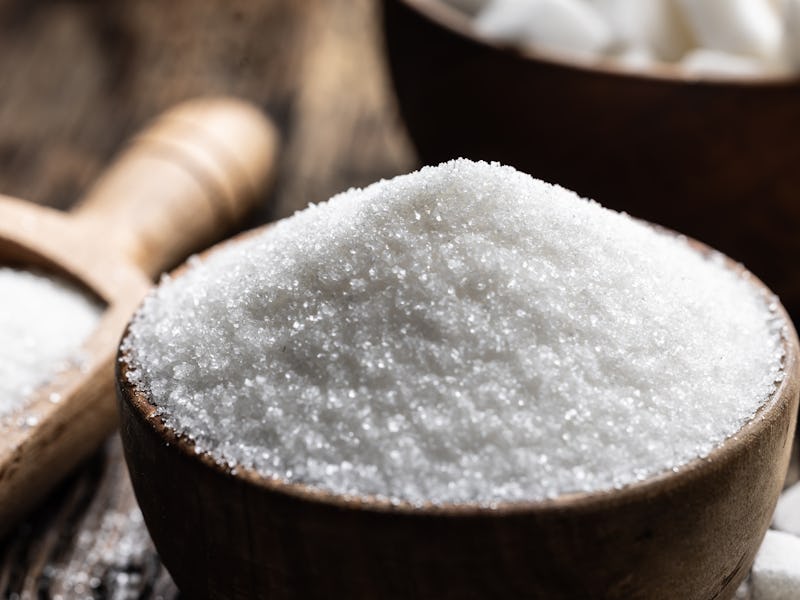This Popular Sugar Substitute May Put Your Heart at Risk, A New Study Reveals
Erythritol increased platelet activity, which increases risk of clotting, which increases risk of heart attack.

For all the flack sugar gets, artificial sweeteners may not have a leg to stand on, either. New research on the artificial sweetener erythritol, which is an ingredient in Truvia, Splenda, and many keto-friendly foods, shows that the sugar substitute puts consumers at increased risk for blood clots, which can raise the risk of heart attack and stroke. These findings were published today in the journal Arteriosclerosis, Thrombosis and Vascular Biology. Though the Food and Drug Administration has designated erythritol “generally recognized as safe” since 2001, this finding urges reconsideration.
In the study, 20 healthy adults fasted overnight before imbibing 30 grams of either sugar or erythritol — equivalent to a sugar-free muffin or diet soda — mixed into water. The authors drew their blood to examine platelet activity before and after ingestion. Platelets are disc-shaped cell components that form clots to stanch bleeding. However, platelets can also clot without a wound; clots that travel to veins and arteries in vital organs can cause a heart attack, stroke, or even death according to the American Heart Association.
Volunteers who took erythritol saw increased platelet activity, which in turn could increase risk of clots. On the other hand, sugar didn’t have this effect on platelets. While this study is small, it’s the first to directly compare erythritol and sugar’s post-consumption effects.
This study doesn’t let sugar off the hook, though. Rather, it highlights the fact that low- and no-calorie sweeteners like erythritol require more research to determine their long-term effects on the body. “These findings underscore the importance of further long-term clinical studies to assess the cardiovascular safety of erythritol and other sugar substitutes,” lead author Stanley Hazen, Director, Center for Cardiovascular Diagnostics & Prevention at the Cleveland Clinic, told CBS News.
Consumers may want to reconsider their choices in light of this research. Those who stand to benefit from choosing sugar-free foods, like those with diabetes, may be putting themselves at risk otherwise. “I feel that choosing sugar-sweetened treats occasionally and in small amounts would be preferable to consuming drinks and foods sweetened with these sugar alcohols, especially for people at elevated risk of thrombosis such as those with heart disease, diabetes or metabolic syndrome,” Hazen told U.S. News & World Report.